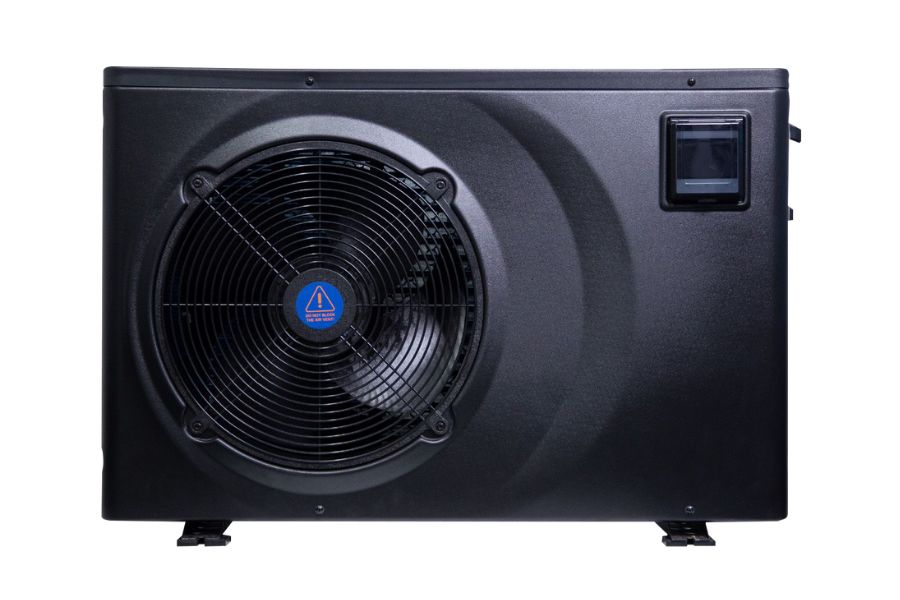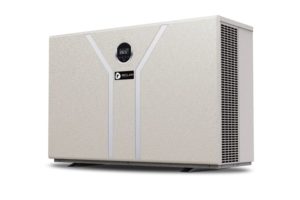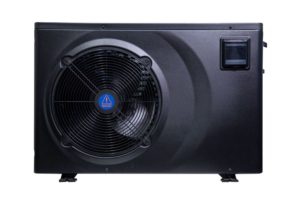
Cooling down in the swimming pool on a hot day is the ultimate summer’s pleasure. However, in Sydney, summer can be short-lived and the weather only allows the pool to be used for a few warm months. This renders your swimming pool an expensive luxury feature to maintain unless it’s heated for more than just the summer months.
There are two popular methods of heating residential swimming pools to extend the time your family can enjoy it, particularly in areas of Australia that are cooler. One is through solar panels and the other is through a heat pump.
Below is a comparison of both to evaluate which is a better choice.
Solar
Using solar to provide power to heat your pool through a clean and genuine renewable energy source that does not deplete the earth’s natural resources. Solar heating works by direct sunlight heating solar panels installed on your roof that in turn circulates hot water into the swimming pool to warm it up.
Other advantages of solar panels include, they are cost-effective and over a period have a financial return on investment (ROI) reducing gas and electricity bills significantly. Especially given a pool temperature can be programmed to be set to a level of your choice and can be controlled to switch on and off.
Advantages and Disadvantages
- Solar pool heating is dependant on the weather
- Environmentally friendly however inconsistent water temperature production can be annoying
- Solar pool heating can be high maintenance, due to bird attacks
- Solar pool heaters also may need electric or gas booster in bad weather.
While a solar pool heating system does have some compelling benefits such as being environmentally friendly, cost savings when it’s hot and sunny, however, these are not always compensated by its disadvantages.
Heat Pumps
Heat pumps work in a similar manner to a reverse cycle air conditioning . It draws in the surrounding air and humidity and transforms it into gas. The gas passes through the heat exchanger condenser.
The pool pump circulates the swimming pool water drawn from the pool, it then passes through a filter and to the heat pump water heater. Because the liquid refrigerant gas and water from the pool is pumped through the warmth exchanger at the identical time, the hot gas transfers its heat to the water.
The water is heated to about 3-5 degrees as it passes through and then the warmer water flows back into the pool.
The heat pump method of heating the swimming pool has several advantages and takes the enjoyment of a family swimming pool to a whole new level.
Advantages and Disadvantages
- Extends the swim season
- Consistently warm water is more enjoyable to swim in
- Can be used for therapy
- Warm water is healthy for stress relief
- Great for muscles and joints
- Increases property value
- Social fun for outdoor entertaining
- Impressive cost savings and (ROI) when drawing small amounts of power of the grid
- Even bigger power savings if you have solar power!
- Cost effective with an attractive ROI due to their longevity
- If the climate is too cold then the heat pump will have to work harder to heat the water.
We recommend that a heat pump is the most efficient and effective way to warm up a swimming pool with solar panels a close second. The key differentiator between them is the weather. To ensure consistent warm water even in the cooler months, the heat pump is the way to go. It is not reliant on direct sunlight and it can continue to heat the pool even with a few days of bad weather and for that reason, several months of the year. You will get far more use and enjoyment from your pool making the entire investment worthwhile.
Regardless of the heating method you choose, don’t forget a pool cover. Not only will it retain the heat inside the swimming pool, it will slow down the evaporation process and stop debris soiling the pool.
What is the best heat pump pool heater?
Soltek Energy supply only the best heat pump pool heaters that save more energy and have more power, especially in the colder months. We recommend using energy created from the roof to heat the pool for a longer swimming season.
Soltek offers pool heat pumps that have been developed to suit Australian conditions. Our heat pumps are 25% more efficient than standard inverter heat pumps, and 50% more efficient than on/off heat pumps!
EFi Inverter Heat Pumps
AES EFi Inverter Heat Pumps use smarter swimming pool heat pumps to help you get the most out of your pool.
Heat your pool year-round with the EFi Ultra Inverter Heat Pump. Australian designed and engineered with experience, 3x more green house friendly and user friendly. EFI heat pumps are suitable for pools of all sizes, as well as spas, and are capable of heating your pool throughout all seasons, or whenever you’re ready to use your pool.
Reclaim Energy Heat Pump Pool Heater
The new premium efficiency Reclaim uses clean CO2 blend heat pump technology to save more money especially when it starts to get cooler.
Reclaim Energy is committed to energy efficiency and developing systems that help people live more sustainable lives. The CO2 Heat Pump System is a result of this commitment. An innovative, intelligent, and customised environmentally sustainable pool heating solution that helps people save money and achieve a more sustainable lifestyle.

We believe in providing the best options in pool heating. Soltek combine premium solar systems with premium energy-efficient pool and water heating systems. Contact us for a quote on pool heating.

